

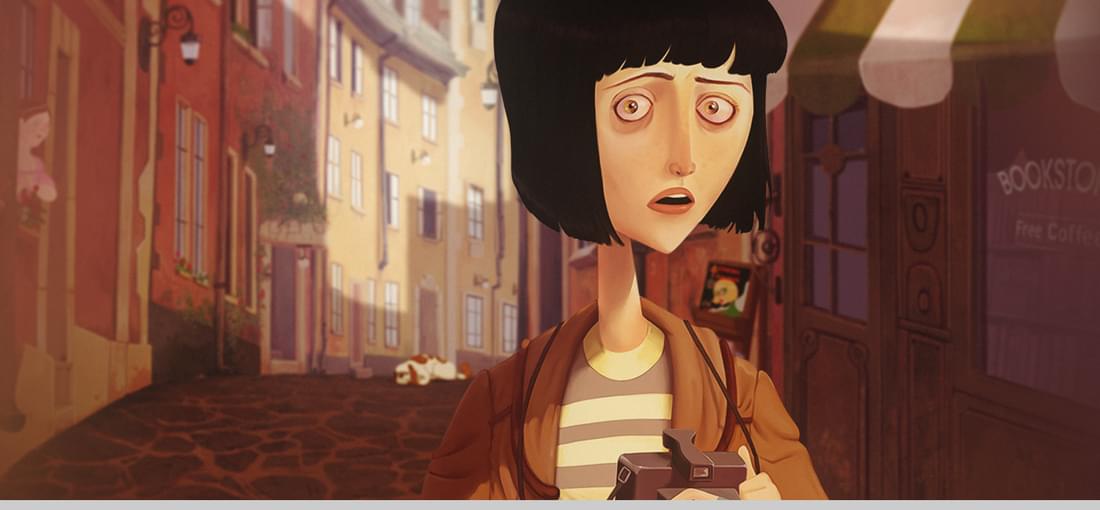
As basically always, I am a bit torn. I like the setting of the game, I like the visualization, I like several really good ideas, I think the voice acting is okay as well. It is a good comic adventure, the plot has some typically Japanese fable-ish touch to it, but I feel inclined to locate the setting in some French coast town instead. To be straight: This is an adventure game. Point-and-click style. So you play some name-forgetting, sleepless girl from the third floor who needs to get rid of her nightmarish dreams. In order to do so, you need to follow one strictly dictated set of actions, in more or less the right order. You will be helped by the notes available through some [M] shortcut. While I love the graphics, the lack of bugs, the setting and the characters/ideas in general (as well as the idea that for some puzzles you will need to remember things, think of the game's name), here is what I dislike: - There is no room for alternatives. There are no easter eggs, no hidden options, no surprises. Even though this is what I expect of any point-and-click adventure game. Instead, you will have to proceed step by step, without the chance to stumble across something new anywhere. - Both the places you visit and the dialogues you may encounter grow more an more repetitive. Sooner or later, this will grow boring. - Items available to pick up may really be hard to spot sometimes. But they will definitely be needed to end the game. - The puzzles are a bit tricky at times. And by puzzles I mean that you will need to inspect a closed door at a certain point in the game to proceed, for instance. No matter whether you had tried so before. The development of the plot is really bad in this regard. And it is precisely this which makes for the worst decision in the game design. The upside with any such straightforward do-this-than-that-in-precisely-that-order approach is, however, that there are no bugs. But be advised to keep a solution web page ready against frustration.
This game is frustrating. And yet this is the very reason for me giving it 4 out of five stars. The idea is simple: You are in jail and need to break out. However, things are not too easy. There is a rigid regime, which requires you to be at certain places or do certain things at certain times. If you do not, you will be thrown back in your efforts to break out. There are those guards who do random checks on your cell and will find and confiscate your tools, weapons, etc., the crafting of which you put a lot of effort in. Plus, of course, you must not be seen at some exploration or break-out attempts. You need to figure out how the prison works as time goes by. The game is full of throwbacks. By design. The save-game technique makes it even more frustrating. Once you go to bed, every evening, the one and only save-game slot will be overwritten with the current state. However, here frustration is what makes this game really interesting. The high cost of failed escape attempts leads to suspense whether the on-going attempt will succeed. You have a lot to lose. The graphics are simple, at times the game is far too crafting-centered for my taste, and there are great numbers of further things which could have been implemented as well. Instigating a riot, for instance, or one's behaviour having some longer-lasting influence on guards and fellow inmates. And so much more. Or that GTA-style rating of alertness of the guards which they introduced in The successor, namely, The Escapists 2 (which I reckon a bit worse than this first part, though). All in all, it is a surprisingly captivating game. A good buy. And a good, albeit frustrating, play.
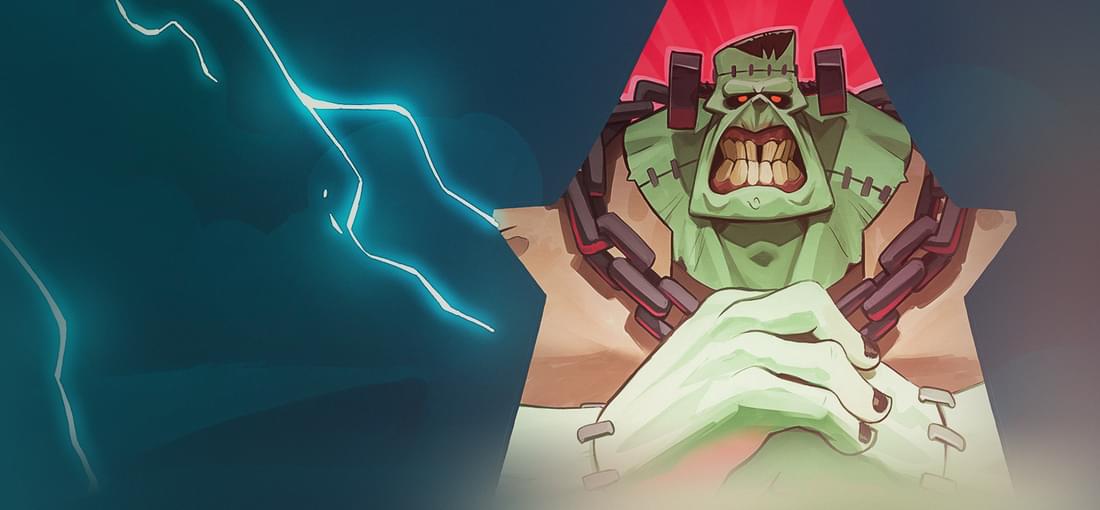
Again, this is a matter of ambivalence to me. The concept of the game is what I like very much, and I reckon those rather simple, but well-designed graphics really good. However, it is absolutely necessary to consult a third-party tutorial on how to play this game and on how the game mechanics work. If you do not want to read through several manuals before enjoying a game, MachiaVillain is nothing for you. Nothing at all, for it has counterintuitive game controls and does an extremely poor job in explaining how it is supposed to work. If you are the type of player who does not shy away from reading external (third-party) manuals on the web, a potentially really good game awaits you. You are the master over a horde of monsters and design a trap resort for slaying lured-in tourists (or, at least, victims). The game mechanics are way more simple than game controls, there is not too much of a logic behind it all -- but it would be easy to grasp if the creators had given a try to explain. It is a mixture of some low-level architecture game and a strategy game. I really hope that the wasted potential will be made up for some day. If you are a player like me, who actually likes those types of game, it will give you several hours of fun -- approximately half the time you will have invested in understanding how or why things do or do not work. Were it not for the sheer incompetence displayed in taking the player by the hand and much more intuitive, better-working and prettier controls, this game might have been given 3 or even 4 stars. But the way it is, I would not recommend it to the average player.
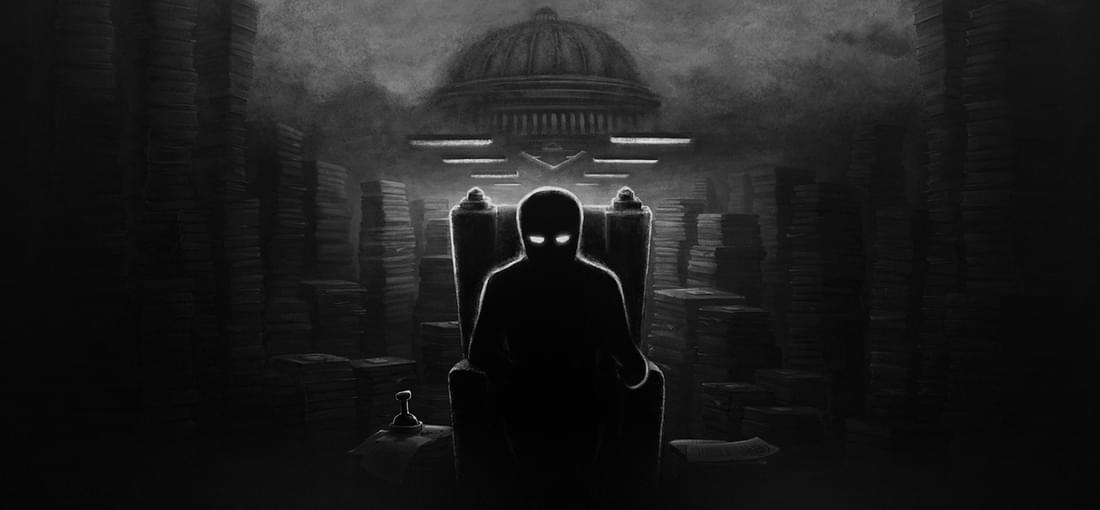
The game is a mixture of »Papers, Please« (where you play a border officer in run-down communist Arstotzka and have to decide on which papers of border-crossers to accept and which not) and its (somewhat) predecessor »Beholder« (in which you play a janitor blockwart spying on inhabitants of an apartment complex for the benefit of a merciless autocratic regime), of several rather text-based unethical-spy games such as, say, »Orwell« or »Need to Know« surveillance, and it mixes in a good deal of bureaucracy humour (which surprisingly does not diminish the great dark overall visual atmosphere). Plus, it is apparently almost an adventure game, albeit with not too many different locations. The main part takes place in a Ministry towering over the city, with a huge Leader statue in front (btw: Glory to His Saviourship!) Its major pros are: (1) The graphics. Rarely has a studio done such a nice job in creating the gloomy, though somewhat comical atmosphere of a reckless state machinery constantly in war. It will remind you of the usual depictions of North Korea or the Soviet Union in darkest colours with an element of Nazi Germany woven in. The atmosphere is really impressive. (2) The plots and texts. One of its greatest elements is that you will need to make sense out of the things your colleagues or citizens say and of gathered information (via spying, mostly), and to set the ball rolling for your march up the ranks, by good means or by bad. So information is sometimes only included in the subtext, but it is fairly well-designed. This leads to the major cons: (1) The speech sound. There are no real languages spoken in the game, but some phrases are played at random with every dialogue part. This is annoyingly disruptive for the sound samples are meagre in number, one and the same sentence in direct succession may easily sound exactly alike. (2) The controls. It gets highly repetitive and time-consuming to navigate through the game with time. Apart from that: Great!

The concept of the game is simple: You enter the elevator of some company, and on every new floor there is a new puzzle. For solving the puzzles, only a limited set of instructions/operators is available. So basically you learn how to program Assembler language. You will wind up creating your own »for loops« and so on. You will basically get a certain understanding on how modern, higher-level programming languages work. But never mind: You will be instructed properly, from the very basics. There is absolutely no need to know anything about computers. However, once you have mastered the game (it was up to level 40, I think, with some bonus levels), you will have developed an understanding of how computer programs work without even knowing it. The puzzles show some range in terms of difficulty; playing time of the game, of course, depends on the puzzle skills of the user, but should be two to four hours. Beating the additional task requirements will certainly require additional time; they are rather difficult. A simple small game with really neat logical puzzles and great instructions. The design is nice indeed, but not too opulent. I strongly recommend this game to anyone not shying away from logical puzzles. And, of course, to anyone interested in programming.
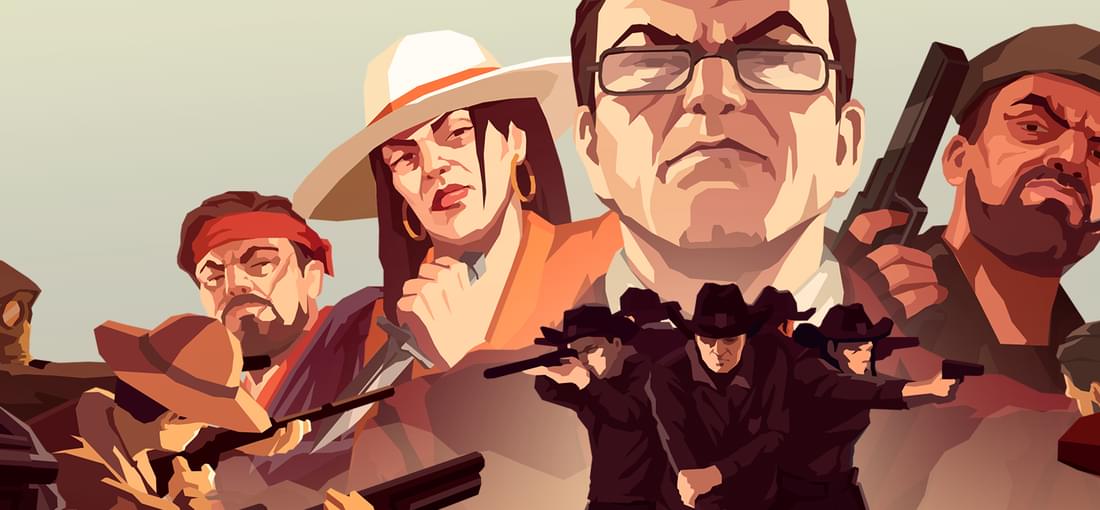
It is not precisely true that this game is a variant of »This Is the Police«. While TItP was designed around some police chief and his assignment tasks, having to value crime reports more or less seriously, the focus has shifted towards a more round-based, Jagged-Alliance-series-style fighting system with »Jagged Alliance 2«. In that game, you had both traditional (depressing, but good) storytelling about corrupt cops and crime and, on the other hand, the round-based strategy fighting system integrated. With Rebel Cops, the focus has shifted more towards the fighting system, which is actually quite okay, but you need to get used to it. While there still are story elements and you still have administrative elements such as item purchase for your cops, the disposal of troops is not at the centre anymore. Therefore, »Rebel Cops« can rather be reckoned a round-based strategy game than a spin-off of TItP. It makes use of pretty much -- though not totally, some extra abilities and Items are new -- the same fighting mechanisms as TItP 2, but has, apart from the graphics, next to nothing in common with the original TItP. That said, it takes a bit of experience to be able to judge the enemies' capabilities at first, but stick with it, and it will be okay. What is a real game breaker for me, though, is that the game does not work properly with my Linux system. It tends to crash in the latest shots I gave it, at some unexpected point of time during game play, and not only are save game slots per mission limited as per game design, but loading those save games does not work at all as well. This is extremely annoying in the beginning: You know your game tends to crash, but you cannot even take the nuisance of frequent saving and loading as a work-around for a solution. TItP's (1 & 2) outstanding sound is not met this time as well. Might be a nice game, but not without any option to save and load and all that crashing. A clear »Do not buy!« from me.
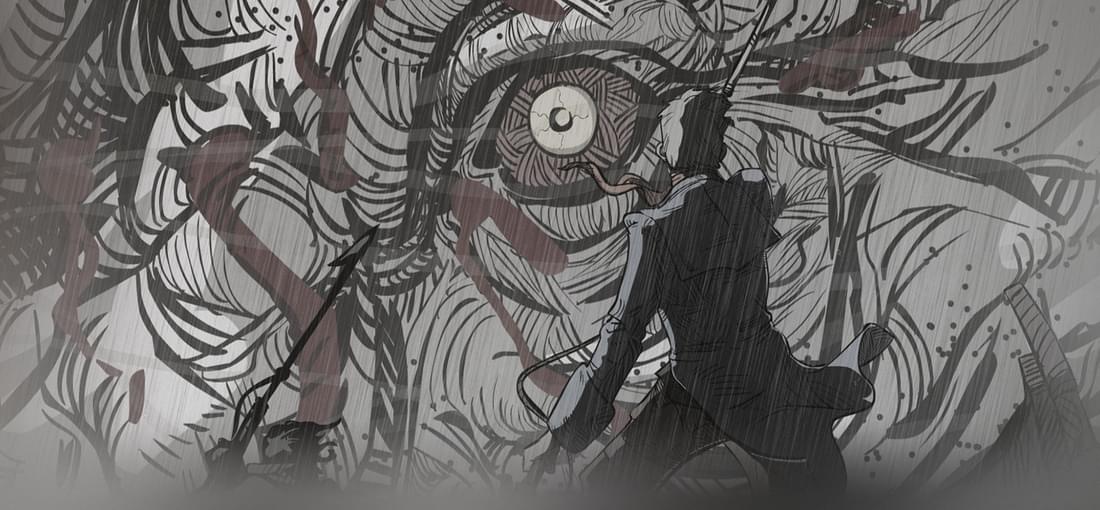
Nantucket is a small computer game with good graphics, good albeit too recurrent sounds, great historicity and some rather meagre story. The appearance is board-game style. Yet while there is a board game called Nantucket about Ahabish whaling, this digital Nantucket has nothing to do with it. Since I am restricted here, the pros and cons for the ~ 10-hour playthrough: Pros: + good, consistent graphics (if you like the style) + good sound (including shanty choirs and a theme song) + nice historical facts in newspaper headlines + controls are okay, even though they could be more intuitive first + relatively stable, only a bit buggy, see below Cons: - repetitive design - lack of options; very unbalanced game elements such as safe docks (which do not provide a benefit) - too little use of »random« factors (i.e., all harbours have their clear set of prices, have the same sailors in their bars, the ships available are always the same, and so forth. A bit more surprising elements would have been nice) - bug: - (1) not only is basically all booty bugged, often producing negative values, or cargo size is calculated completely wrong (do NOT make the mistake and calculate yourself, you will be disappointed by the horrific mistakes by the game), - (2) but sometimes the quest line just disappears until you accidentally hit a storyline spot, then it returns all of a sudden. - (3) Enemy encounters close to the map's edge tend to break the game. - (4) Getting into the menu from combat is an impossible or time-consuming thing to do. Tip: set combat speed to fast. A good, lightweight game by a small crew with a good background. I do not see a big strategy or even biz simulation aspects, it is far too shallow; replayability is not a key feature. There seem to be no easter eggs, and »visit[ing] cities« is NOT one of its features. I would have liked less card and dice elements, they make the game mechanics look cheap. A missed opportunity. Still good.
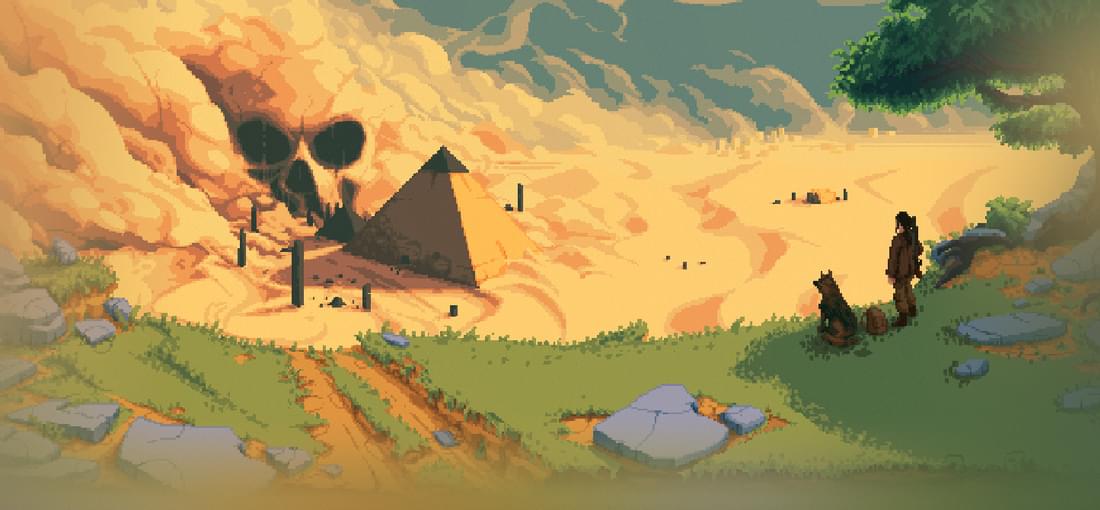
"Pathway" feels a bit like older Jagged Alliance games: It is a turn-based combat game. But not against some weirdo island dictator, but against Nazis (and Zombies and so on, but mostly Nazis). Choose your characters, their skills, level up, choose your weapons and armour, and take cover behind walls. There are some differences, however: Compared to the Jagged Alliance series, this game has fewer options. It is simpler, in a way, at least compared to the non-initial versions. The map is randomly built for each game, that is, not the map itself, but the "encounter points" on it. Chance plays an overwhelmingly huge role in the game. Basically all action is thanks to pseudo-randomization, tactics are a bit neglected. Just by the random layout of even the initial map, you can be forced to fail with your first mission. And with the next try, you will (just due to chance) win with flying colors. The game is really unbalanced in that regard, even apart from its explicit "luck" events. The most annoying thing about this game, though, is that in spite of its simplicity it has a lot of bugs. There are enemies who just prefer not to die, and of course with my Linux Mint systems the GOG version either will not start at all, or, even more annoying, it will crash, most notably when just winning battles. Hardware requirements do not reflect the simplicity of the game, it is mis-designed in this regard. Apart from these downsides, the game is good, though. Its underlying story is flat, as are the characters, but it feels a bit like the Indiana Jones sequel I would have waited for feverishly fifteen years ago. It is entertaining. If eventually those bugs will be eliminated, it will be worth playing. Overall, by its role-playing gameplay it provides a good low-budget game with standard "pixel-arts" graphics. Even though I would have wished it were a little less luck-based. And, of course, those bugs were not there.
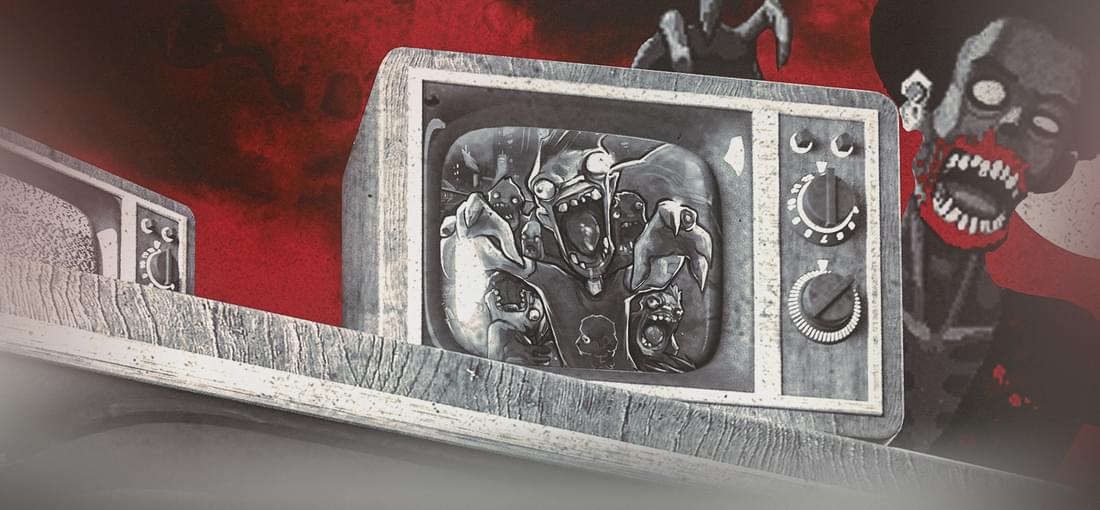
Being not exactly the speed-run type of player and all too often stressed out by micro-management prerequisites, I was a bit hesitant at first. Then I decided to go for the game -- based on its good reviews -- and did not give it too much of a try after the initial keyboard controls screen (seemed kind of hard to remember, all those keys). This was basically what kept me from playing at first. On giving it a try, though, I found that the controls and features are neatly introduced in a step-by-step fashion. You do not need to cram anything into your head. You do not have to act fast, but may pause (or pseudo-pause, e.g. by entering the throwing mode) any time. You do not need to rush to micro-management. The gist of the game is solving puzzles on how to spread a zombie disease. This may look easy in Dawn / Shaun of the Dead, but this game makes it increasingly difficult. One major problem is that zombies will die (once and for all) pretty easily: They may fall too deep, they may be struck or shot to death by opponents, they may be locked somewhere, they may run out of "DNA". The levels are really puzzling at times, and this is the only weakness of the game: At times, the game forces the player to experiment on how to solve a certain task, by introducing new opponents, e.g. The otherwise logic-based game becomes a wholly experience-driven game at these points of time. You need to know (or guess) the effects of a "new" interaction in order to proceed. While this has some charm to it, it does not correspond to the majority of the experience. The rest is all good. I did not see any difficulty level switch, but by providing an additional challenge for each level there are two levels of difficulty in-built without hampering the game flow. Towards the end the difficulty became repetitive / tiring for my taste. Graphics are a bit retro, but really fit, I love the game "speech audio", I like the humour, and the German-language version is incredibly well written. A fun game!